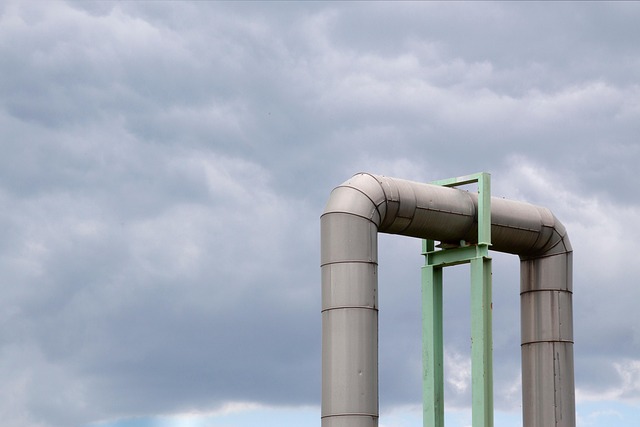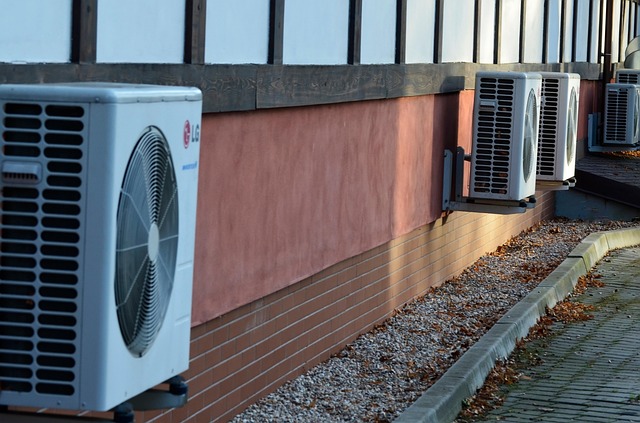Electric boilers, as efficient heating alternatives, optimize energy use through direct electrical conversion. Heating capacity, temperature settings, and usage frequency impact electricity consumption. Smart programming, preheated water, and enhanced insulation significantly enhance electric boiler efficiency, reducing energy waste. Programmable electric boilers learn routines, adjust temperatures, and minimize idle power usage, offering substantial cost savings over traditional gas boilers while promoting sustainable heating.
In today’s quest for energy efficiency, programmable electric boilers are emerging as a game-changer. Understanding the unique energy consumption patterns of these appliances is crucial. This article delves into how programmable boilers can optimize heating, promising significant savings. By examining advanced control systems and smart home implementation, we explore sustainable solutions that make electric boilers more than just devices—they become integral parts of an eco-friendly future.
- Understanding Electric Boiler Energy Consumption
- The Promise of Programmable Boilers
- Optimizing Heating Patterns for Efficiency
- Advanced Control Systems: The Key to Savings
- Implementing Smart Solutions for Sustainable Homes
Understanding Electric Boiler Energy Consumption

Electric boilers, as a key component of modern home heating systems, have distinct energy consumption patterns that require understanding for optimal efficiency. Unlike traditional fossil fuel-based boiler systems, their electric counterparts directly convert electrical energy into heat, making energy wastage minimal in theory. However, factors such as heating capacity, water temperature settings, and the frequency of use significantly influence overall electricity usage.
Understanding these consumption patterns is crucial for homeowners looking to integrate electric heating systems or residential electric boilers into their homes. By setting optimal temperatures, scheduling smart heating during peak hours, and employing time-based control mechanisms, users can achieve substantial energy savings without compromising comfort. Moreover, adopting energy efficient heating methods like preheated water and enhanced insulation further enhances the efficiency of electric HVAC systems and boiler systems, contributing to a greener, cleaner heating technology.
The Promise of Programmable Boilers

The promise of programmable electric boilers lies in their ability to revolutionize energy consumption patterns and transform how we heat our homes and buildings. These advanced devices offer a significant leap forward in energy efficiency compared to traditional electric heating systems and residential electric boilers. By employing sophisticated software and smart technology, programmable electric boilers can learn and adapt to daily routines, optimizing temperature settings and reducing energy wastage.
This level of control and customization is particularly beneficial for energy efficient heating and electric HVAC systems, enabling users to save on their energy bills while minimizing environmental impact. Programmable boiler systems also facilitate clean and quiet electric space heating, making them an attractive alternative to fossil fuel-based home heating boilers. The integration of these technologies into modern homes and businesses represents a significant step towards sustainable and efficient electric heating technology.
Optimizing Heating Patterns for Efficiency

Optimizing heating patterns is a key aspect in enhancing the efficiency of electric boilers and overall energy consumption in both commercial and residential settings. Electric heating systems, especially central heating installations, have evolved to become more sophisticated, allowing precise control over temperature and timing. By implementing smart programming, these electric central heating systems can adapt to various occupancy schedules, ensuring optimal performance without waste. This technology enables the boiler systems to adjust heating patterns, providing ample warmth during occupied hours and reducing energy usage when spaces are unoccupied or at night.
Energy-efficient heating has become a priority for many homeowners and businesses due to its environmental benefits and cost savings. Residential electric boilers, equipped with advanced controls, can significantly contribute to this goal. Electric HVAC systems offer the advantage of quick response times, allowing for precise temperature adjustments in individual rooms using electric space heating solutions. This level of control not only improves comfort but also ensures that energy is used efficiently, eliminating unnecessary energy consumption and reducing utility bills associated with traditional boiler systems.
Advanced Control Systems: The Key to Savings

Advanced Control Systems play a pivotal role in optimizing energy consumption patterns for electric boilers. These sophisticated systems are designed to dynamically adjust heating outputs based on real-time demand, ensuring that residential electric boilers operate efficiently. By integrating smart technology, electric heating systems can anticipate and respond to changes in household activity, weather conditions, and time of day, thereby reducing unnecessary energy usage.
This level of control is particularly beneficial for electric central heating and residential electric boilers, as it helps to minimize the environmental impact associated with electric HVAC systems. The efficient management of boiler systems translates into significant savings on energy bills without compromising comfort or performance. Moreover, clean heating systems based on electric space heating technology contribute to a healthier environment by reducing emissions compared to traditional gas-fueled home heating boilers.
Implementing Smart Solutions for Sustainable Homes

Implementing smart solutions for sustainable homes is becoming increasingly crucial in the pursuit of energy efficiency and cost savings. Among these innovations, programmable electric boilers play a pivotal role due to their ability to optimize energy consumption patterns. By integrating advanced control systems, these boilers can adjust heating output based on real-time demand, ensuring that homes are comfortably warm when needed while minimizing idle power usage.
This technology is particularly relevant for residential electric boilers and electric central heating systems, offering significant advantages over traditional boiler systems. Energy-efficient heating with electric HVAC (heating, ventilation, and air conditioning) systems not only reduces carbon footprints but also lowers utility bills for homeowners. The shift towards clean heating systems like electric space heating is driven by a growing awareness of the environmental benefits and the promise of a more sustainable future.
Programmable electric boilers represent a significant step forward in energy efficiency, offering optimized heating patterns that reduce consumption and cut costs. By leveraging advanced control systems, these smart solutions not only enhance the comfort of sustainable homes but also contribute to a greener future. Implementing programmable electric boilers is a proactive approach towards conserving energy, making them an indispensable asset for modern households.






